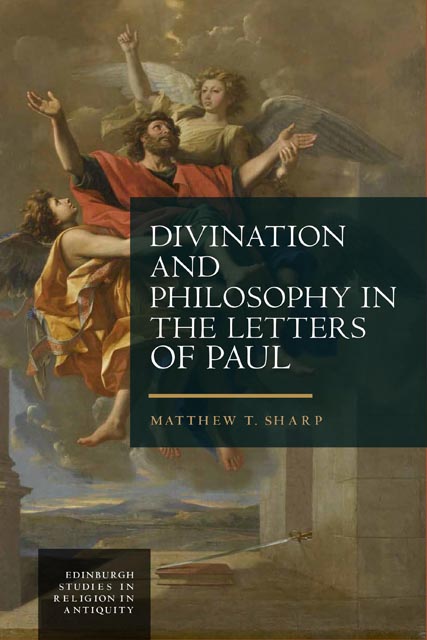3 - Speech
Published online by Cambridge University Press: 02 June 2023
Summary
In the previous chapter, I argued that visionary experiences play a key role in Paul’s reception of divine knowledge. It also became clear that in the ancient world such visions were not limited to sight alone, but could also convey verbal, oracular instruction. Paul’s healing oracle in 2 Cor 12:9 is one such example in which Paul can report the words of the Lord in a context which presupposes a visionary experience. This chapter is concerned with similar instances of Paul reporting divine speech.
Chapter 1 highlighted the prominence of pneuma, and “words taught by pneuma” (1 Cor 2:13) in Paul’s reception of divinatory knowledge. Part one of the present chapter examines the words Paul says are spoken by pneuma, which, perhaps surprisingly, fail to provide any divinatory knowledge at all. Instead, each time Paul makes pneuma the subject of a verb of communication the speech is always directed from humans to God, and is always in a language unintelligible to the speaker. Part two of this chapter turns to the topic of prophecy as the sort of speech that does communicate divinatory knowledge for Paul. This is speech ἐν πνεῦμα, which involves the anthropological partnering of the mind (νοῦς). Paul’s letters provide glimpses of his own prophetic speech, and of his oracular role in general, such as when he makes short-term predictions of his own suffering, when he gives commands from the Lord and his own pneumatic judgement on certain topics, and when he provides details of more expansive eschatological scenarios.
The Audible Pneuma
Wordless Prayers (Romans 8:26)
In Rom 8:26, Paul says that when believers do not know what to pray the pneuma petitions God on their behalf with wordless groans (στεναγμοῖς ἀλαλήτοις). In this way the pneuma aids believers in their weakness. God knows the intentions of the pneuma because it can petition God in the right way.A στεναγμός is a groan or sigh often used in conjunction with γόος, “weeping” or “wailing,” to denote audible sorrow (Sophocles, Oed. tyr. 30; Euripides, Orest. 959; Plato, Resp. 578a).
- Type
- Chapter
- Information
- Divination and Philosophy in the Letters of Paul , pp. 97 - 132Publisher: Edinburgh University PressPrint publication year: 2023



